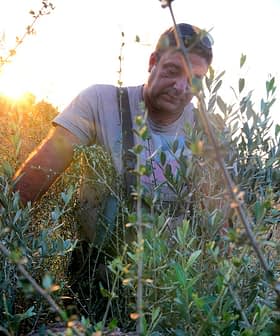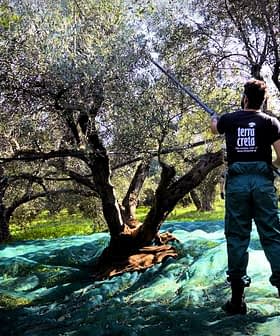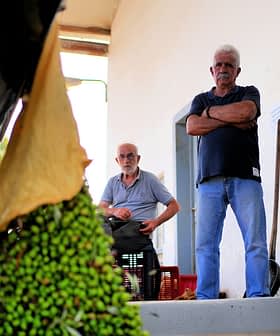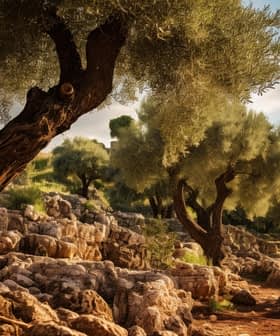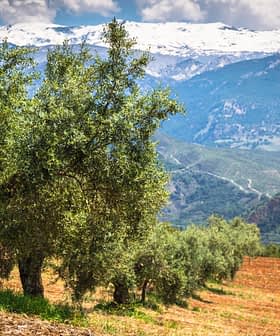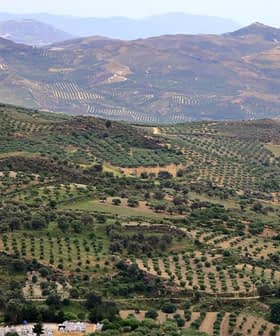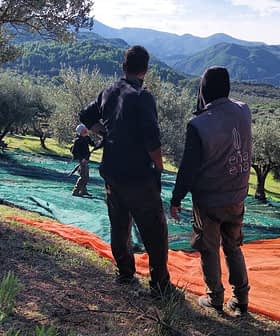Farmers in Greece Call for Subsidies Amid Low Yields
Olive growers and oil producers in Greece gathered to demand financial aid due to a poor harvest, asking for €200 per stremma and compensation for reduced production costs. Protests took place in various olive-growing regions, with growers facing a potential €1 billion loss of income this year, prompting calls for government support.
In Greece, olive growers and oil producers gathered outside regional government buildings nationwide, seeking financial aid to cope with this year’s extremely poor olive harvest.
The demonstrators demanded that all olive growers in the country receive €200 per stremma (a traditional Greek unit of measurement equivalent to 0.1 hectares) of olive trees to strengthen their income.
We can’t make ends meet since we produced so little olive oil.
They also called for measures to reduce production costs and add olives to the crops eligible for compensation by ELGA (the Greek Organization of Agricultural Insurance) after natural disasters.
“The lack of fruition in our area ranges from 80 to 100 percent, while olive trees do not qualify for any compensation,“ said Thanasis Halatis of the agricultural association of Kalyvia on the northern Chalkidiki peninsula during a protest in front of the regional government building in Thessaloniki.
See Also:Two Greek PDO Olive Oils Receive Protection in IndiaThis crop year, olive producers in Chalkidiki, where the region’s characteristic green, oval-shaped table olives are grown, are expected to harvest only a fraction of last year’s bumper crop of 160,000 tons.
Other olive farmers attending the protest stressed that the soaring production costs threaten their business.
“With production costs at €800 per stremma from €600 last year, it becomes obvious that not only will we not break even, but we will find ourselves in debt,” they said.
Similar protests took place in other olive-growing regions of the country, including Messenia and Laconia in the Peloponnese, Lesbos, Heraklion and Chania in Crete and Fthiotida in central Greece.
Agricultural associations and unions of olive growers from all over the country had announced their mobilization in a panhellenic meeting in Atalanti a week before the protests, arguing that the problem of low fruition is not sporadic but affects the entire Greek olive sector.
According to the growers’ blockade committee, which coordinated the demonstrations, olive growers in Greece are facing a €1 billion loss of income this year due to reduced crops.
In the region of Magnesia in central Greece, the poor performance of the olive trees has added an extra layer of hardship for a substantial yield to local producers after the summer wildfires and floods.
“Magnesia is home to many stremmata [of olive trees] and has suffered extensive damage from the floods, the fires and the olive fruit fly, combined with a 95 percent reduction in tree flowering,” said Thodoris Georgadakis, head of the region’s union of agricultural associations.
“We request a compensation of €200 per stremma, and the money must reach everyone before Christmas,” he added.
While Greek table olive producers are bearing the largest brunt of the low fruit bearing this year, the country’s olive oil producers are also impacted, with the overall yield of olive oil expected to drop to around 200,000 tons from 340,000 tons.
“Olive oil producers face a huge problem this year,” said Dionysios Gonis of the agricultural association of Argolida in eastern Peloponnese, who protested the reduced yield along with other farmers in Nafplion.
“We can’t make ends meet since we produced so little olive oil,” Gonis added. “Reduced fruition is not compensated by ELGA, so we are asking for €200 per stremma to cover our expenses and continue to grow our trees. We want the state and the regional government to help us so that the olive oil does not reach consumers at these prices.”
The olive and olive oil producers who participated in the protests across Greece said they would reassess the situation in early January to decide on possible new mobilizations.


